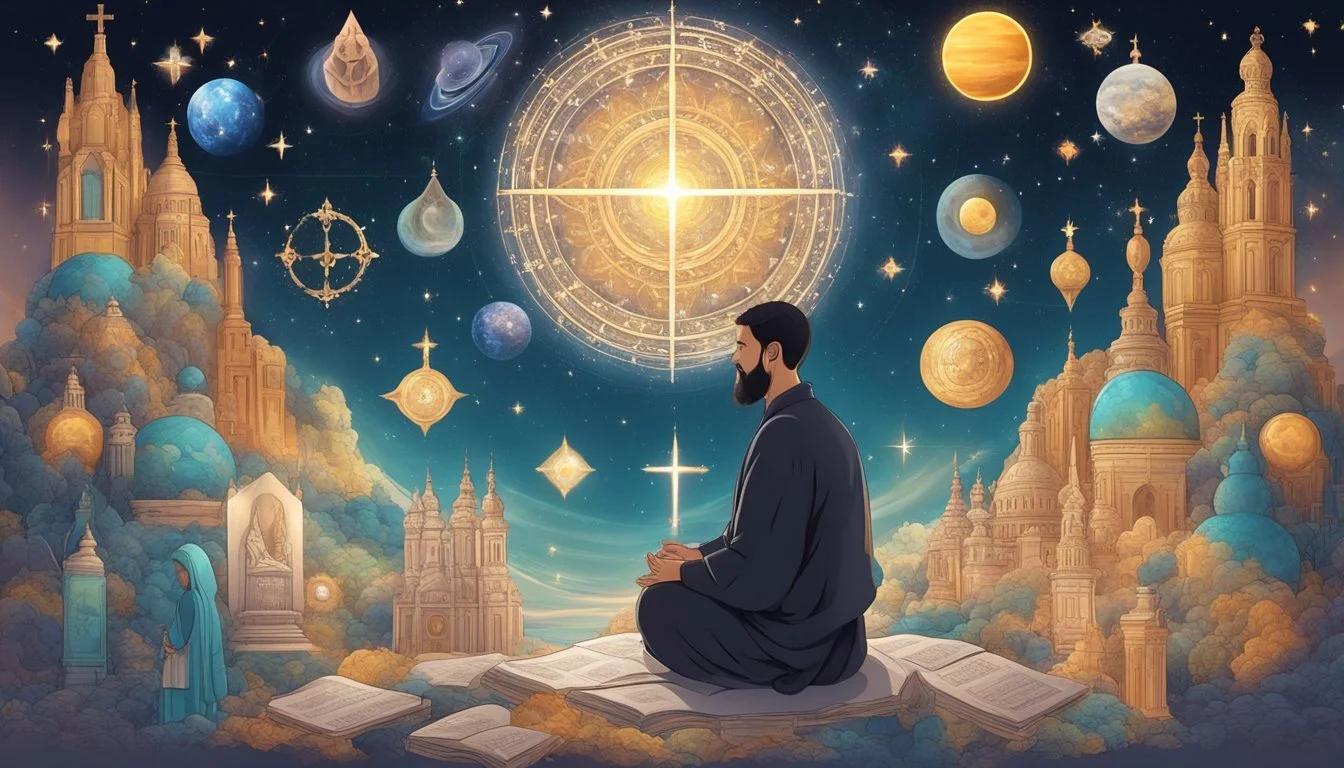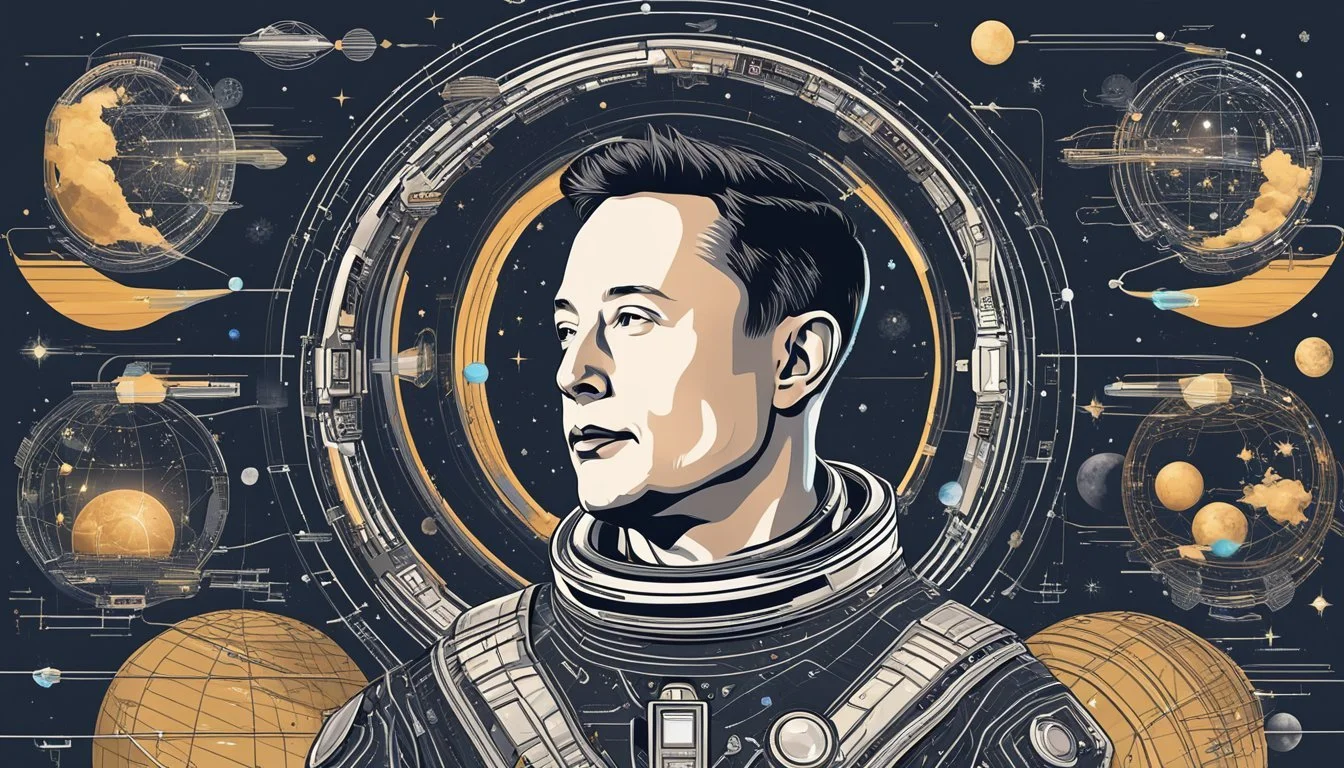Exploring Elon Musk Faith and Spiritual Beliefs
Exploring the Tech Mogul's Spiritual Views
Elon Musk, the world's richest man and a prominent figure in technology and innovation, has sparked curiosity about his religious beliefs. Many wonder if the SpaceX and Tesla CEO adheres to any particular faith or spiritual practice.
Musk has described himself as a "cultural Christian," expressing admiration for the teachings of Jesus while not considering himself particularly religious. This stance reflects a broader philosophical approach that values certain aspects of Christianity without fully embracing its theological tenets.
Musk's perspective on religion aligns with his reputation for challenging conventional thinking. His views on faith and spirituality seem to be shaped by a blend of rationalism, cultural heritage, and appreciation for moral principles. This nuanced position adds another layer of complexity to the multifaceted persona of one of the most influential figures in modern technology and business.
Elon Musk's Background
Elon Musk's upbringing and early career shaped his path to becoming a prominent tech entrepreneur. His childhood experiences and education laid the foundation for his future ventures in various industries.
Early Life and Influences
Elon Musk was born in Pretoria, South Africa, in 1971. His father was Anglican, and Musk attended Anglican Sunday school and Church of England services as a child. This religious exposure, however, did not lead to strong religious convictions later in life.
Musk showed an early aptitude for technology, teaching himself computer programming at age 12. He moved to Canada at 17 to attend Queen's University, later transferring to the University of Pennsylvania where he earned degrees in economics and physics.
Entrepreneurial Ventures
Musk's entrepreneurial journey began with Zip2, a web software company he co-founded in 1995. After selling Zip2, he co-founded X.com, an online payment company that later became PayPal.
In 2002, Musk founded SpaceX with the goal of reducing space transportation costs and enabling the colonization of Mars. Three years later, he joined Tesla as chairman and later became CEO, driving the company's mission to accelerate sustainable transport.
These ventures established Musk as a key figure in both the aerospace and automotive industries, showcasing his ability to innovate across diverse technological fields.
Public Statements on Religion
Elon Musk has made various public statements about religion, God, and spirituality over the years. His views have evolved and sometimes appear contradictory, reflecting a complex relationship with faith and metaphysical concepts.
Musk's Views on God and Consciousness
Musk has expressed uncertainty about the existence of God while acknowledging the possibility. He stated on the Full Send Podcast that he's "not really an atheist" and is "okay with going to hell." Musk has shown interest in the nature of consciousness and reality, pondering if we might be living in a simulation. He's described himself as a "big believer in the principles of Christianity" and a "cultural Christian," emphasizing moral teachings like "love thy neighbor" and "turn the other cheek."
Interactions With Religious Figures
Musk has engaged with prominent religious and philosophical thinkers. He's had conversations with Jordan Peterson, discussing topics like consciousness and morality. Musk has also interacted with figures known for their critiques of religion, such as Richard Dawkins and Ayaan Hirsi Ali. These exchanges often blend scientific, philosophical, and spiritual concepts, reflecting Musk's multifaceted approach to questions of faith and existence.
Elon Musk and Christianity
Elon Musk has expressed views on Christianity that have sparked interest and debate. His stance combines elements of cultural appreciation with philosophical alignment.
Cultural Christianity and Elon Musk
Elon Musk has described himself as a "cultural Christian." He values the principles and traditions associated with Christianity while not necessarily adhering to all religious doctrines. Musk has stated that he believes in the teachings of Christ and sees them as important moral guidelines.
The tech entrepreneur has emphasized the significance of Christianity in Western civilization. He warned that Western society could face severe challenges if it loses its Christian foundations. This perspective highlights Musk's recognition of Christianity's historical and cultural influence.
Comparison of Christian Teachings and Musk's Philosophy
Musk's public statements reveal some parallels with Christian teachings. He has expressed concerns about declining birth rates, which aligns with the Christian emphasis on family. His technological pursuits often aim to benefit humanity, echoing Christian values of stewardship and service.
However, Musk's views diverge from traditional Christian doctrine in certain areas. His focus on space exploration and technological solutions to human problems differs from religious approaches to existential questions. Musk's philosophy blends scientific rationalism with elements of Christian ethics, creating a unique worldview that resonates with some and challenges others.
Philosophical Beliefs and Worldviews
Elon Musk's philosophical outlook blends elements of scientific rationalism, existentialism, and pragmatism. His worldview emphasizes the pursuit of knowledge and the expansion of human consciousness.
Influence of Nihilism and Existentialism
Musk's thinking shows traces of existentialist philosophy. He often ponders life's big questions and humanity's place in the universe. This contemplative approach aligns with existentialist ideas about finding meaning in an uncertain world.
Musk has expressed skepticism toward traditional religious doctrines. Instead, he focuses on the tangible impact of human actions and technological progress. This pragmatic stance reflects a form of secular humanism.
His views on consciousness and reality echo some nihilistic concepts. Musk sees expanding consciousness as key to understanding reality, suggesting a belief that meaning is not inherent but created through exploration and discovery.
Belief Structure and Values
Musk describes himself as a "cultural Christian" and appreciates certain Christian principles. He values forgiveness and the concept of turning the other cheek, incorporating these ideas into his personal ethics.
His belief structure prioritizes scientific inquiry and technological advancement. Musk views these as essential for addressing global challenges and ensuring humanity's long-term survival.
He places high value on curiosity and continuous learning. This manifests in his diverse business ventures and his emphasis on innovation across multiple fields.
Musk's philosophy also includes a strong focus on long-term thinking and species-level considerations. He often frames his goals in terms of benefiting humanity as a whole, rather than just individuals or nations.
Technology and Spirituality
Elon Musk's views on technology and spirituality intertwine in complex ways. His approach blends futuristic technological visions with philosophical musings on existence and consciousness.
Musk's Vision of Technological Salvation
Musk often frames technological advancement as a form of salvation for humanity. He sees projects like space exploration and sustainable energy as crucial for human survival and progress.
These endeavors take on an almost spiritual significance in Musk's worldview. He positions technology as a means to solve existential threats and elevate human consciousness.
Musk's companies, such as SpaceX and Tesla, embody this techno-optimistic philosophy. They aim to push the boundaries of human achievement and safeguard our future.
Artificial Intelligence and Consciousness
Musk's thoughts on AI reveal a nuanced perspective on consciousness and machine intelligence. He expresses both excitement and caution about AI's potential.
On one hand, Musk invests in AI research through companies like Neuralink. These projects aim to merge human and machine intelligence, potentially expanding consciousness.
However, he also warns of AI's risks, advocating for responsible development. This duality reflects a deeper contemplation of what constitutes consciousness and intelligence.
Musk's statements on AI often touch on philosophical questions about the nature of mind and self. He ponders the possibilities of digital consciousness and the ethical implications of creating sentient machines.
Space Exploration and Religious Symbolism
Elon Musk's space exploration endeavors through SpaceX intertwine with quasi-religious themes of human destiny and cosmic purpose. His vision for Mars colonization and expanding human civilization carries undertones of spiritual significance.
SpaceX and the Quest for a Self-Sustaining City on Mars
SpaceX aims to establish a self-sustaining city on Mars, a goal that echoes religious narratives of promised lands and new beginnings. Musk sees this mission as crucial for humanity's long-term survival and expansion. The company develops advanced rockets and spacecraft to make interplanetary travel feasible.
SpaceX's Starship, designed for Mars missions, represents a technological pilgrimage vehicle. The project embodies Musk's belief in human potential to overcome seemingly impossible challenges.
Population Collapse and Future Aspirations
Musk has expressed concerns about population collapse, viewing space colonization as a solution. He envisions a future where trillions of humans inhabit the solar system. This aspiration reflects a cosmic-scale interpretation of the religious concept of "be fruitful and multiply."
The CEO's focus on building space infrastructure aligns with his "religion of curiosity." It represents a secular approach to ensuring humanity's continuation and growth beyond Earth.
Musk's ambitious goals for Mars and beyond blend technological progress with existential questions traditionally addressed by religion. His vision positions space exploration as a path to transcend earthly limitations and fulfill humanity's potential in the cosmos.
Cultural Impact and Legacy
Elon Musk's self-identification as a "cultural Christian" has sparked discussions about faith, technology, and societal values. His statements have resonated with some while drawing criticism from others, shaping public discourse on the role of religion in modern life.
Influence on Society and Pop Culture
Musk's "cultural Christian" stance has influenced conversations about spirituality in tech circles. His views have been featured in mainstream media, prompting debates on social platforms. Some see Musk as bridging the gap between secular innovation and traditional values.
The Tesla CEO's references to Christianity have appeared in memes and online discussions. His comments have inspired both support and skepticism from various religious and non-religious groups.
Musk's "Religion of Curiosity" concept has gained traction among some tech enthusiasts. This idea blends scientific inquiry with spiritual-like devotion to exploration and innovation.
Comparisons With Contemporary Tech Leaders
Musk's approach to faith differs from other prominent tech figures. Unlike Jeff Bezos, who rarely discusses religion publicly, Musk openly shares his thoughts on Christianity's cultural significance.
Some compare Musk's "cultural Christian" identity to Steve Jobs' interest in Buddhism. Both leaders have incorporated spiritual elements into their public personas and company cultures.
Musk's space exploration goals with SpaceX are often contrasted with Bezos' Blue Origin. While both cite inspiration from science fiction like "The Hitchhiker's Guide to the Galaxy," Musk more frequently references religious traditions in his vision for humanity's future.





